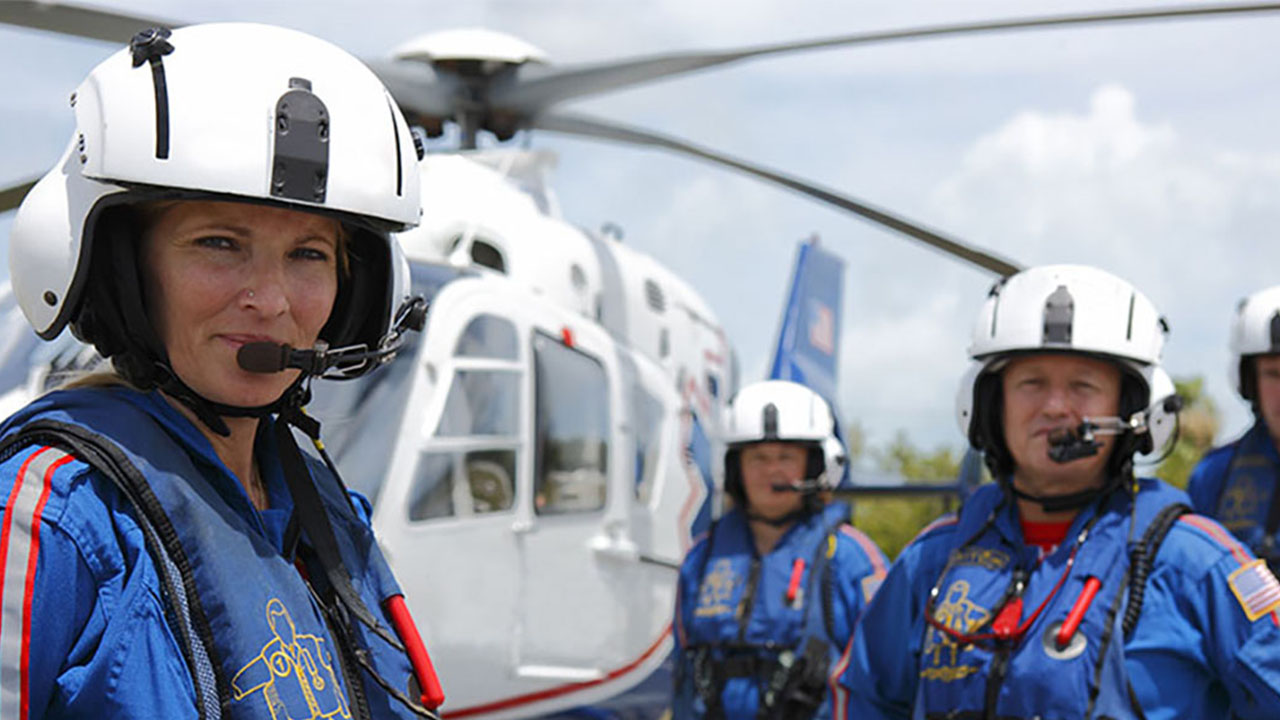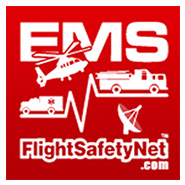Boom!
There it is.
The email you’ve been waiting for.
An invitation to interview with your favorite air medical flight program.
The flight team you’ve dreamed about joining has an opening —and you’re on the short list. All good. Except you’ve never done a phone interview before…
And you’re not really sure how to prepare.
Here’s some good news: This article will get you ready for your flight job phone interview.
Here are 10 tips to nail your flight job phone interview.
10 Tips to Nail Your Phone Interview
1). Get Clear On What Phone Interview Success Is
One of Stephen Covey’s 7 Habits of Highly Effective People is to begin with the end in mind. Covey’s timeless advice applies to flight job phone interviews.
Understanding the real purpose of flight job phone interviews is critical to your success.
What is the purpose of a flight job phone interview?
Easy answer.
In 99% of flight job phone interviews, success is getting invited to a face-to-face interview.
Almost no air medical flight crew positions are filled via phone interviews only. The phone interview is simply a screening process. Understand this up front and use it to your advantage.
2). Do Your Homework
Everyone in Emergency Medical Services (EMS) knows the cliche about poor planning. Don’t be a victim to it.
Remember that phone interviews are in fact interviews. Prepare the same way you would prepare for an in-person or “real” interview.
Do your homework.
Know your stuff. Have the same information, questions and answers you would bring to an in-person interview.
3.) Smile
It’s important to smile when answering questions over the phone.
Sounds hokey, right? But it’s true.
Your smile is automatically transferred to your tone of voice. It makes a difference. Really.
Feeling “smile handicapped” after working EMS for a long time? I understand. Here’s what worked for me:
Paste a big smiley face on your computer monitor (or somewhere near you) before the phone interview. Use it as a reminder to smile. Also, spend a little time before the phone interview thinking about the prize. Think about all the ways getting the job will improve your life.
If this technique doesn’t make you smile, then you’re probably interviewing for the wrong job.
4.) Use a Landline
Technology is great.
It’s easy to argue how technology has made our lives better.
But…
There’s a time and a place for everything. Not every tool is right for every job.
Your smart phone is NOT the right tool for a phone interview. Use a landline from a controlled location of your choosing.
5.) Call from Home
Do your phone interview at home.
Preferably, do your phone interview from your home office or kitchen table. If possible, schedule your phone interview for a time when you’re the only one home.
Why?
Because you’ll automatically reap the benefits of a known and comfortable setting with limited distractions. Controlling as many variables as possible gives you an edge during the phone interview.
6.) Make a Cheat Sheet
Leverage what’s in your control.
Keep your resume, cover letter, cheat sheet and list of interview questions close by.
What’s a cheat sheet?
A cheat sheet is a list of any pertinent information that can help you during your phone interview. Maybe the names of all the towns where your target flight program has bases? Maybe the specs about the type of helicopter your target flight program owns?
You get the idea.
7.) Give Yourself Time
The best way to seem relaxed in an interview, is to actually be relaxed in an interview.
Scheduling extra time before and after your scheduled interview time goes a long way toward accomplishing this goal.
Give yourself extra time. You don’t want to feel or sound rushed.
I recommend a minimum of 15 minutes (preferably 30 minutes) on each side of your scheduled interview time.
8.) Don’t Talk Money
Don’t disclose salary expectations in a phone interview.
In most cases, your interviewer will not bring this topic up via phone. If they do bring it up, just state your preference to talk about salary requirements in person.
If your interviewer presses the issue (which has yet to happen with anyone I’ve coached) then provide a salary range you believe is competitive. Know this range ahead of time.
9.) Be Convincing
EMSers amaze me.
What’s more impressive than saving a person’s life? Nothing I know of.
Yet, most medical crews I’ve worked with don’t think of themselves this way. And they don’t describe themselves to others this way.
Don’t get me wrong. I’m all for humility.
But there’s also a time and place to sing your own praises. The interview process is one of these times.
If it helps you, think of the process this way: you can’t help anyone unless you get hired. And you can’t get hired without sharing your uniqueness and accomplishments. You have a responsibility to tell your own story in as favorable a light as possible.
10.) Say Thanks
Manners are a lost art.
I teach my kids how much manners matter, and how easy it is to set themselves apart from other kids–just by using good manners.
The same is true of flight interviews.
Be sure to thank your interviewer for their time on the phone. Do it once at the very beginning of your interview, and again, before finishing the call.
Don’t over-do it (twice is enough) and don’t make a big deal about it. You want to come across like using good manners is completely natural for you. A simple “thanks for talking with me today” and “I appreciate your time” are all that is required.
Ready, Set, Interview
Follow the tips above to succeed in your flight job phone interview.
Remind yourself you can do it.
Your proof is your invitation to interview. If the flight program didn’t believe you were capable and qualified, they wouldn’t have extended the invitation, right?
Have confidence in yourself. You can do it.
[divider style=”4″]
Want EMS flight job tips and advice sent straight to your inbox? Get The Net newsletter. Sign up here (it’s free):
[shortcode-variables slug=”optin-form”]


